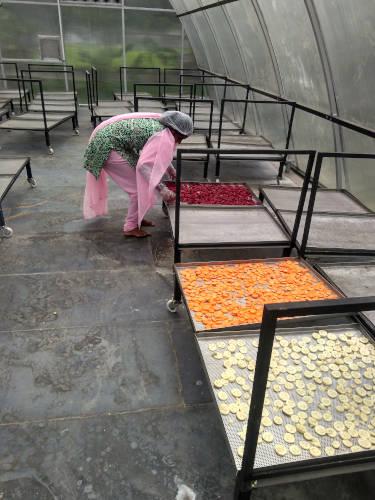Salem, Tamil Nadu. A sleepy town that has age-old textile units and is the railway station from which to take a bus or cab to the hill station of Yercaud. Right? “Wrong!” says Chocko Valliappa -- and sets about proving it. Much of the credit for the transformation of Salem into an industrial and educational hub belongs to his grandfather M.S. Chockalingam, a textile businessman, with a desire to give back to society and nurture the next generation. The group got its name Sona from the nickname that his friends and admirers had given him. Long before Chockalingam, however, the group was founded in pre-Independence India by Kalaithanthai Karumuttu Thiagaraja Chettiar in the 1920s to bring about economic development through education and industrial development. The polytechnic, named after him, was set up in 1957. The Sona group of educational institutions, of which Chocko Valliappa is vice-chairman, is ‘particularly proud’ of having empowered 725 women farmers to set up paver block manufacturing units and solar food processing facilities, as well as training physically challenged women to use sewing machines that have been re-engineered specially to suit them. The Sona Women Entrepreneurship and Training (SWEAT) centre also trains them in pulse plating of silver anklets and recycling of waste paper, then connecting them with industry to improve their livelihoods. During the height of the Covid-19 pandemic, the Sona Women Sanitation and Hygiene group designed masks, PPE kits, coveralls and protective wear, which were produced through women’s self-help groups. Many of these were also gifted to the local hospitals and Covid-19 warriors. National award winner With nearly two in every five faculty and researchers and three in every 10 students at the group’s colleges being women, the Sona College of Technology was a hands-down winner of two national awards: the AICTE’s Lilavati Awards 2020 for women entrepreneurship and women’s hygiene and sanitation. The ‘Radiant Seetha’ team from the group’s Thiagarajar Polytechnic College, the first institution set up by the group, also won the contest in the 'legal awareness' category. In 2019, too, the polytechnic had won the AICTE-CII Ind Pact Award for the Best Industry-Linked Polytechnic and was elevated to the status of a Mentor Institute last year by virtue of winning the award for successive years in different streams. As a mentor, it guides 100 polytechnics and 50 engineering colleges on how to increase their students’ learning capabilities. “We have taught more than 50,000 students,” says V. Karthikeyan, its principal. “About 40 per cent of our staff members are our alumni.” Chocko Valliappa, who now runs the group with his father C. Valliappa, chairman, and brother Thyagu Valliappa as fellow vice chairman, says that, with 36-plus research centres and many products created through in-house R&D, the aim is to drastically reduce what he calls PPP – paper per person. “We also execute projects for women’s technology parks (WTPs) with the help of the Department of Science & Technology fund of Rs1.26 crore. We make these available for local farmers to use at a price.”
-

Chairman C. Valliappa presents a diploma to a differently-abled technical graduate



































